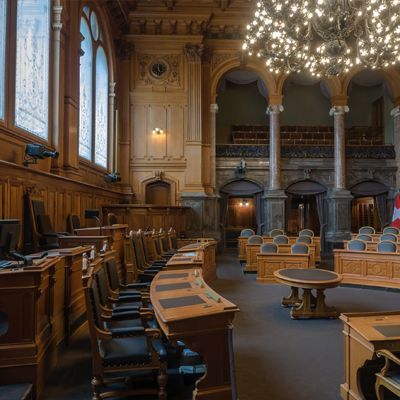Frequently Asked Questions About Panama Immigration & Business Law
Get clear answers to the most common questions about residency, visas, and setting up a business in Panama — all in one place.
Can I work in Panama after obtaining residency?
Permanent residency gives you the right to live in Panama, but working requires a separate work permit. Some residency programs allow you to apply for this permit, so if you plan to work, choose a program that includes this eligibility.
Is a Multiple Entry Visa required for my residency application?
Yes. If you plan to leave Panama while your residency application is pending, a Multiple Entry Visa is required. Without it, temporary residents risk a $2,000 USD fine. Our firm includes this visa by default in residency applications.
How long must I live in Panama after obtaining residency?
You can live in Panama indefinitely, but to maintain your residency, you must re-enter the country at least once every two years.
Can you help me apply for the immigration amnesty program known as Crisol de Razas?
No. This temporary program is handled directly by the Immigration Office and does not require legal assistance. We recommend checking the Immigration Office’s official website for information.
How long are my documents valid before submitting a residency application?
Validity varies by document:
- Criminal records: 6 months (unless stated otherwise)
- Panama health certificate: 90 days
- Bank reference letter: 30 days
- Marriage, birth, and retirement certificates: 6 months
If I live abroad, how much time do I need to spend in Panama to apply for residency?
Plan for at least 5 business days, though 8–10 days is ideal. General timeline:
- Day 1: Notarize your passport
- Day 2: Register with Immigration
- Day 3: Submit application and apply for Multiple Entry Visa
- Days 4–5: Complete visa approval process
Are criminal records issued by my country’s consulate in Panama valid for a residency application?
Sometimes. Panama Immigration accepts consulate-issued criminal records from certain countries, including the UK, Chile, Argentina, South Korea, and Colombia.
Do nationals from restricted countries need a visa, and what is the validity period?
Yes. A special visa called a VTR is required. However, applicants with a valid and previously used US or UK visa can enter Panama without a VTR for up to 30 days. Restricted countries include India, China, Pakistan, Iraq, and Bangladesh.
Can you assist me with obtaining a Panamanian driver’s license?
While we can offer general guidance, we do not handle this service directly. Residency is required to apply, but the process does not need legal representation.
Am I allowed to drive in Panama using my foreign license?
Yes, for up to 90 days. However, once you apply for residency, your foreign license is no longer valid and you must obtain a local Panamanian driver’s license.
What is the timeframe for requesting an extension on my temporary residency?
Under Resolution 15703 (August 24, 2012), you may request an extension for up to six months.
What are the qualifications for obtaining permanent residency as a refugee or asylee?
Please refer to Law 14 of October 15, 2013 for specific requirements regarding residency for refugees or asylees.
Can a work visa under Panama’s 10% or 15% foreign labor rule lead to permanent residency?
Yes. Under Executive Order 229 (March 22, 2013), foreign workers with this permit may apply for permanent residency if they earn at least B/. 850 and have received two prior extensions.
What is the legal framework behind the Panama–Italy permanent residency program?
The program is supported by Resolution 4803 (March 30, 2012), Law 15 (February 1, 1966), Law 3 (February 22, 2008), and Executive Order 320 (August 8, 2008).
Can former foreign employees of multinational companies apply for permanent residency?
Yes. Former foreign employees with five or more years of experience in a multinational company can apply for permanent residency, as outlined in Executive Order 822 (August 2, 2013).
How far in advance should I apply for a VTR visa if required?
According to Executive Order 863 (June 21, 2011), the VTR (Tourist Visit Visa) must be requested at least 60 days before traveling.
What is Panama’s Special Permanent Residency program?
This program allows any foreigner with a recommendation letter from the President of Panama to obtain permanent residency under Executive Order 2 (January 17, 2013).
Can bearer share certificates be used for immigration purposes in Panama?
No. Shares must be registered in the applicant’s name. Bearer certificates are not accepted under Executive Order 147 (March 17, 2017).
Can I open and work in a business I own in Panama?
You can invest and start a business in Panama, but even as the owner, you must obtain a valid work permit to be legally employed in your own company.
How is a Panamanian corporation structured?
A corporation includes:
- Dignitaries: President, Secretary, Treasurer
- Board of Directors: At least three members
- Shareholders: Hold ownership and appoint the Board
The Board manages corporate operations, including appointing the CEO or President.
Is a resident agent required for corporations in Panama?
Yes. All Panamanian corporations must have a resident agent who is a licensed attorney or law firm, as required by law.
What are the annual costs for maintaining a Panamanian corporation?
Corporations must pay a $300 government tax annually. Your resident agent may also charge a separate maintenance fee for legal representation.
How much does it cost to maintain a Private Interest Foundation (PIF)?
PIFs are subject to a $400 annual government tax. As with corporations, resident agents may charge an additional annual service fee.
What are the benefits of forming a corporation in Panama?
Corporations protect personal assets from business liabilities and are often used to hold real estate or bank accounts. They are ideal for both domestic and international business operations.
Why establish a Private Interest Foundation (PIF) in Panama?
PIFs are excellent tools for estate planning. They allow assets like property or bank accounts to pass directly to heirs without probate, reducing cost and delay.
What’s the difference between an IBC and an LLC in Panama?
IBC: Requires 3 Directors, 1+ Shareholders. Offers privacy (Anonymous Corporation).
LLC: Requires 2 Managers, 2+ Partners. Names must be disclosed publicly.
LLCs are often preferred when transparency is required by the client’s country of origin.
Can I be granted power of attorney within my corporation?
Yes. Power of attorney can be granted by corporate resolution or by amending the articles of incorporation. It may be assigned to partners, shareholders, directors, or third parties.
What steps are required to dissolve a Panamanian corporation?
Dissolution requires:
- A notarized company resolution to close
- Registration with the Panama Public Registry
- Publication in a local newspaper
Can I change the resident agent of my corporation?
Yes. The company must prepare a formal resolution and register it with the Public Registry to update the agent.
How long does it take to incorporate an IBC in Panama?
Depending on the service plan selected, incorporation usually takes between 4 to 6 business days.
What is the minimum capital required to form an IBC?
An IBC requires a minimum authorized capital of $10,000, which does not need to be paid in full or released at the time of incorporation.
What is the minimum number of shareholders required for an IBC?
A corporation in Panama can be legally formed with just one shareholder.
Can IBC shareholders be of any nationality?
Yes. Shareholders of International Business Corporations (IBCs) in Panama can be individuals or legal entities of any nationality, residing anywhere in the world. There is no requirement for Panamanian citizenship or residence.
What responsibilities do shareholders have in a Panamanian IBC?
Shareholders’ liability is limited solely to the unpaid portion of their subscribed shares. They are not personally responsible for the corporation’s debts or legal obligations.
What is the role of the Public Registry of Panama?
The Public Registry is the official institution responsible for registering all corporations and legal entities established under Panamanian law, including foreign corporations doing business in Panama. It is widely regarded as one of the most modern and efficient registries in Latin America.
What is the annual tax obligation for IBCs in Panama?
Panamanian corporations must pay an annual government tax of $300 USD to maintain their legal status and corporate registration.
What types of activities are considered illegal for corporations in Panama?
Illegal activities include money laundering, drug trafficking, human trafficking, terrorism financing, and any activity prohibited under Panamanian law or international regulations. Corporations found engaging in such activities are subject to severe penalties and dissolution.
Who We Are
Trusted Legal Experts in Panama and Beyond
With over 25 years of experience, our attorneys have guided clients from around the world through Panama’s complex immigration and business systems. Whether you're relocating, investing, or expanding your company, our team offers the legal clarity and strategic insight you need.
Why Clients Choose Us:
– Deep knowledge of Panama’s immigration and corporate laws
– Proven success with multinational businesses and foreign investors
– Bilingual support and personalized legal solutions
Helping Clients in 20+ Countries Navigate Panama with Confidence
25+ Years of Combined Experience





